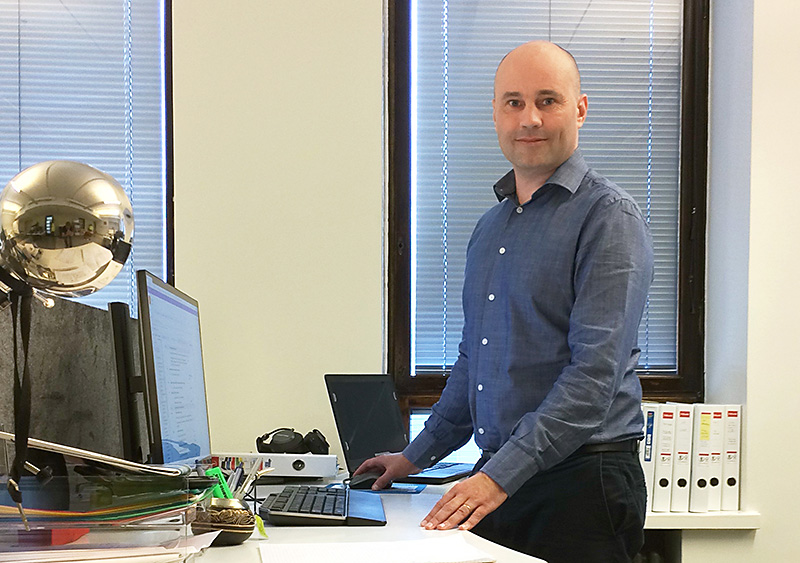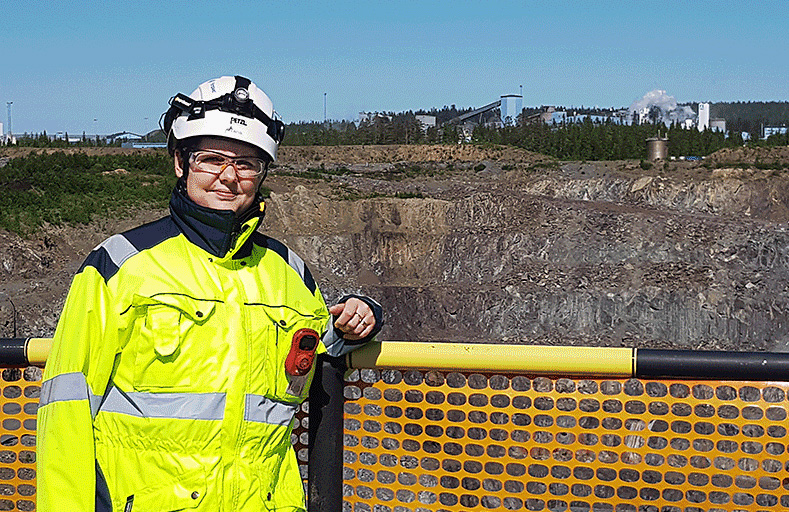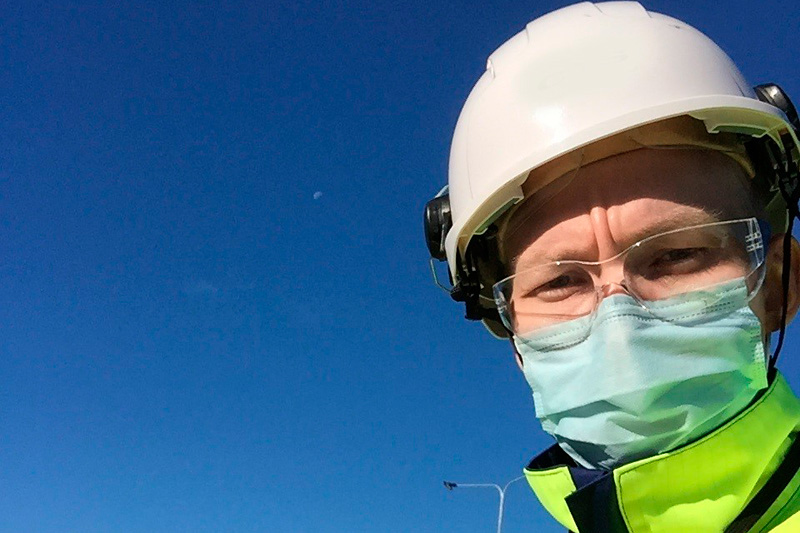More than 10 years of worldwide career

Since his graduation as a Civil Engineer, large construction projects have taken Sami Kaskela to different parts of the world. According to Sami, at the very least, this has taught him how to adapt and cope with uncertainty.
Sami Kaskela is among the first employees hired by Fimpec. He joined the company soon after its foundation.
“Marko Mäkimartti contacted me in late 2010 and asked whether I would be interested in working for Fimpec. I knew him and Pekka Salomaa from before, since we worked at the same time with the Fray Bentos pulp mill project in Uruguay in the mid-2000s. I decided to say yes, and have kept walking that road”, Kaskela says.
Kaskela’s first task in Fimpec’s service was the Montes del Plata pulp mill project in Uruguay, where he worked as an Area Supervisor. After completion of the project, Kaskela returned to Finland in early 2014 and worked as a Project Engineer for the Riikinvoima eco-power plant project in Leppävirta, Procurement Engineer for the Kemira chlorate plant expansion project in Joutseno, Project Manager for the Arkadiankatu 23 renovation project in Helsinki, and performed some project development tasks.
Kaskela was awarded RAP qualification in 2016. In 2017, once again, he departed for Uruaguay, where he worked as the Country Manager for Fimpec Uruguay S.A, and as the Project Manager for a port terminal project associated with UPM’s Paso de los Toros pulp mill project. In spring 2019, Kaskela returned to Finland to work with Fimpec’s projects in the field of industry.
“I have had the possibility of participating in various fascinating and unique projects and working with different people”, Kaskela sums up his career so far.
The benefits of working abroad
The pulp mill projects in Uruguay are only part of Kaskela’s work experience acquired abroad. After graduating as a Bachelor of Civil Engineering in 2002 and before joining Fimpec, Kaskela participated in several projects of large Finnish construction and technology companies in Uruguay, India, the Caribbean region, and West Africa.
According to his calculations, after the graduation, he has spent about 11 years abroad. However, working outside Finland has not been an end in itself or something he has sought for. Good opportunities have simply presented themselves and Kaskela has been prepared to grab them.
”There are many aspects to this. In general, the projects in question have been extensive, and such projects have their own fascinating dynamics that interests me. Of course, working abroad also grants the possibility of getting to know different cultures and working environments.”
Adaptation skills are required
According to Kaskela, a job is a job, regardless of country or continent. However, there are cultural differences that establish their own requirements. He stresses the significance of adaptability and the ability to cope with uncertainty.
“In different countries there are different habits you need to adapt to. The construction methods and working traditions may differ from those customary in Finland, but the results achieved are actually as good. You will have to accept that there is no single right way for doing things. If you want to get things going, never underestimate cultural differences.”
According to Kaskela, Uruguay, the destination of his most recent foreign assignment, is a peaceful and stable country. Working there was made easier by the Spanish skills and understanding of the local culture acquired over the years.
“Language skills make things easier in case of work and free time alike. Language also helps to understand and gain access to the local culture, which is important if you want to enjoy your stay”, he says.
Work satisfaction is important
Before Fimpec, Kaskela worked for two large Finnish companies. He admits that they were good employers as well, but Fimpec has special strengths extending beyond mere interesting work tasks.
“I like working for a small and agile company. Communication with the management is direct and the approach more personal as compared to large groups. We have always succeeded in taking care of things.”
Sami Kaskela has dedicated a major part of his work life to foreign assignments, especially in Uruguay. He does not have an extensive collection of souvenirs, but at his current workplace, the role of a pencil stand is performed by a mate cup.


